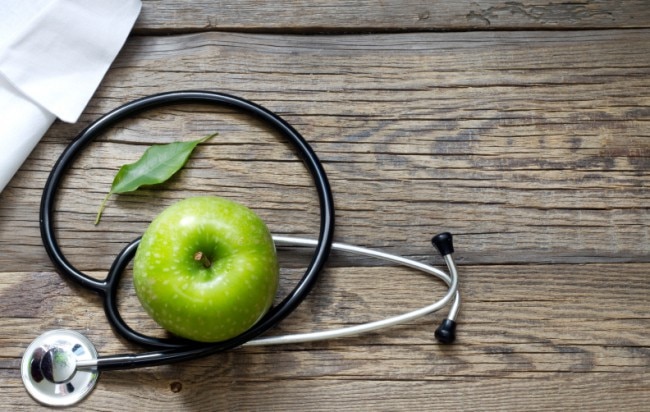Dr. Morton Tavel is fed up with the health care falsehoods he sees on TV and online, whether the information comes from companies pitching their products or from “experts” promoting their own agendas.
“Information obtained this way is often unscientific, unbalanced and, sadly, blatantly fraudulent,” says Tavel, professor emeritus of medicine at Indiana University’s medical school. “Unfortunately, surrounded by all this noise, mainstream physicians are seldom heard from. Moreover, few are willing to devote the time necessary to expose those ubiquitous misconceptions and to provide countering advice stemming from sound scientific research.”
To help fill the void of accurate medical information, Tavel decided to write the newly released book “Health Tips, Myths, and Tricks: A Physician’s Advice.” Tavel hopes readers learn how to follow a healthy lifestyle while also avoiding useless and sometimes dangerous approaches to health.
“As a member of the conventional medical community, I have decided to present a balanced picture of what works, what doesn’t work, what are outright frauds and what we really don’t know,” says Tavel, who specializes in cardiology and internal medicine.
Here are six of the surprises, myths and tips that Tavel wants you to know about.
- Regulatory roulette
The U.S. Food and Drug Administration (FDA) wields little control over the manufacture and sale of dietary supplements, including vitamins, minerals, herbs, amino acids and extracts. Even when a problem crops up with a dietary supplement, the FDA has “limited means to remove potential or actual offenders from the marketplace,” Tavel says.
- Vax attacks
Tavel says a study published in 1999 led to a dangerous myth about the connection between vaccines and autism. The 12 children in the study presumably developed autism after receiving a standard MMR (measles, mumps and rubella) vaccination, he says. However, the study was too small to draw sound conclusions about any tie between the two, Tavel says.
“Subsequently, numerous independent studies were performed that failed to find any link between vaccines and autism,” he says. “Moreover, procedural problems were uncovered involving the original publication that impugned the integrity of this study, causing the author to be discredited and the original journal editors to retract the entire study.”
Still, that study ignited a scare over vaccines and autism, he says, and prompted millions of parents to delay or decline immunizations for their children. “Many parents now have a vague distrust of vaccines, with little to no memory of diseases that terrified their grandparents,” Tavel says.
- Bogus energy boost
Caffeine-charged energy shots are no better than caffeinated coffee, Tavel says, and actually cost more. These boosters contain useless additives, with the only active ingredient being caffeine, he says. If you’re seeking a caffeine pick-me-up, you should reach for a cup of coffee, rather than an energy shot, according to Tavel.
- Rx for exercise
You don’t need to be a hard-charging triathlete to derive benefits from exercise. From a brisk walk to a strenuous aerobic workout, 30 to 60 minutes of exercise at least three times a week will do the trick, Tavel says. That level of exercise can help ward off heart disease, stroke, diabetes, cancer, high blood pressure, depression and other conditions, he says.
“Interestingly, increased fitness even increases one’s tolerance to pain,” Tavel says, “and this can be useful in treating some painful conditions.”
- Power of potassium
Dietary potassium plays a big but underappreciated role in our health. “Often overlooked, potassium is a mineral necessary for many bodily functions,” Tavel says.
Among other things, he says, potassium benefits muscle growth and brain function, supports healthy blood pressure and helps to protect blood vessels.*
“This mineral is found in many different foods, especially fruits and vegetables, so you may be getting plenty of potassium in your diet already. But most people aren’t,” Tavel says.
Most experts recommend a daily intake of at least 4,700 milligrams of dietary potassium, he says. However, the typical American gets only about 3,000 milligrams a day. Good sources of dietary potassium include sweet potatoes, tomatoes, beets, white beans, yogurt, squash, fish, bananas and prunes, according to Tavel.
- Paging Dr. Google
Self-diagnosis of medical conditions by combing the Internet is risky, as online information about health often turns out to be “inaccurate and biased,” according to Tavel.
“Only a competent physician is in a position to give the most accurate and contemporary advice available and provide the sound care that everyone deserves. The simple decision about which tests — if any — you should request to arrive at a proper diagnosis requires a physician,” he says.
Tavel adds: “Although commonly maligned and too often in short supply, the personal attention that can be supplied only by a real-life caregiver cannot be obtained through the Internet.”
*These statements have not been evaluated by the FDA. These products are not intended to diagnose, treat, cure or prevent any disease.

